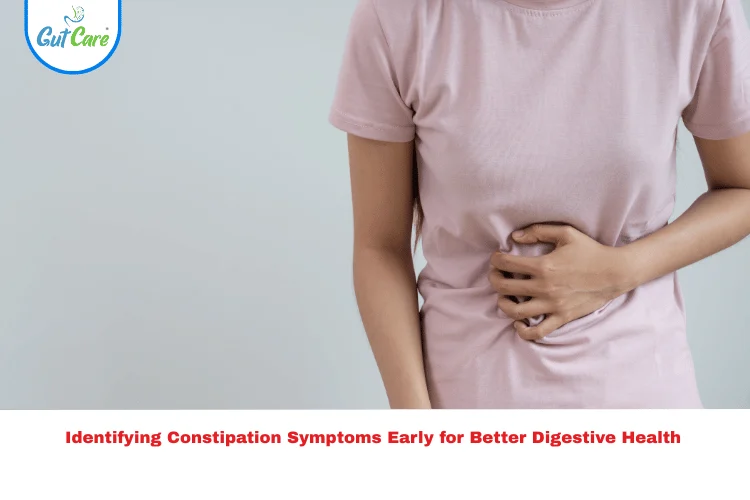Patients with various colorectal conditions, including Obstructed Defecation Syndrome, receive thorough evaluation and treatment from Dr. Yuvrajsingh Gehlot, leading colorectal surgeon at Gutcare Clinics, Bangalore. This condition often causes difficulty in passing stool, straining, and a sense of incomplete evacuation. Understanding its definition, causes, and treatment options helps improve bowel health and quality of life.
What Is Obstructed Defecation Syndrome?
Obstructed Defecation Syndrome (ODS) is a form of chronic constipation where a person has difficulty evacuating stool despite the urge to defecate. The issue lies not in stool consistency but in the coordination of the pelvic muscles and rectal structures involved in bowel movement.
Obstructed Defecation Definition:
It refers to a functional or structural issue that prevents the normal passage of stool through the rectum and anus. The person often feels a constant need to strain, even after passing stool, and may experience a sensation of incomplete evacuation.
Common Causes of Obstructed Defecation Syndrome
Several factors can contribute to Obstructed Defecation Syndrome, ranging from lifestyle habits to structural issues in the pelvic floor.
1. Structural Causes
- Rectocele: A bulge of the rectum into the vagina that obstructs stool passage.
- Rectal Intussusception: The rectal wall folds inward during defecation.
- Anal Stricture: Narrowing of the anal canal that hinders stool movement.
2. Functional Causes
- Pelvic Floor Dysfunction: Improper coordination of pelvic muscles during defecation.
- Chronic Constipation: Long-term straining can weaken muscles and cause nerve dysfunction.
- Psychological Stress: Anxiety and stress may interfere with bowel habits and muscle coordination.
Understanding these common causes is essential to diagnose the root issue and create an effective obstructed defecation treatment plan.
Recognizing Obstructed Defecation Syndrome Symptoms
Early identification of obstructed defecation syndrome symptoms helps prevent chronic discomfort and complications.
Typical symptoms include:
- Persistent straining during bowel movements.
- Sensation of incomplete emptying after defecation.
- Needing to press the abdomen or perineum to assist evacuation.
- Hard or infrequent stools.
- Pelvic pain or pressure.
- Occasional mucus discharge.
If these symptoms persist, consulting a colorectal surgeon like Dr. Yuvrajsingh Gehlot at Gutcare Clinics, Bangalore is crucial for proper evaluation and diagnosis.
Diagnosis: How Specialists Identify ODS
Accurate diagnosis ensures effective treatment. At Gutcare Clinics, Dr. Yuvrajsingh Gehlot conducts detailed assessments, which may include:
- Anorectal Manometry: Measures muscle coordination and pressure.
- Defecography: Imaging test to visualize rectal function during defecation.
- Colonoscopy: To rule out structural abnormalities or other conditions.
- MRI Pelvic Floor Scan: To assess muscle strength and movement.
These diagnostic tools help determine whether the cause is structural, functional, or both, guiding the best obstructed defecation treatment approach.
Obstructed Defecation Treatment Options
Treatment for Obstructed Defecation Syndrome depends on its cause and severity. At Gutcare Clinics, a personalized approach is followed to ensure effective and lasting relief.
1. Conservative Treatments
- Dietary Modifications: High-fiber foods and adequate hydration help soften stools and reduce strain.
- Pelvic Floor Physiotherapy: Strengthens muscles and improves coordination for better bowel movements.
- Biofeedback Therapy: Teaches patients how to relax and contract the right muscles during defecation.
- Stool Softeners or Laxatives: Used in short-term cases to relieve constipation.
2. Minimally Invasive or Surgical Options
If conservative measures fail, certain surgical procedures may be considered:
- STARR Procedure (Stapled Transanal Rectal Resection): Corrects rectal prolapse and intussusception.
- Rectocele Repair: Strengthens the rectal wall to prevent stool trapping.
- Anal Dilatation or Fissure Repair: Helps in cases with structural narrowing.
Each obstructed defecation treatment plan is tailored to the individual’s needs and guided by the findings from diagnostic evaluations.
Prevention Tips and Reasons to Seek Early Care
Preventing Obstructed Defecation Syndrome involves maintaining bowel regularity and pelvic health. Early care ensures faster recovery and prevents complications.
Prevention Tips:
- Eat a High-Fiber Diet: Include fruits, vegetables, and whole grains daily.
- Stay Hydrated: Drink enough water to keep stools soft.
- Exercise Regularly: Physical activity supports healthy digestion.
- Avoid Straining: Respond to the natural urge to defecate without delay.
- Manage Stress: Relaxation techniques can help reduce muscle tension.
- Seek Medical Guidance Early: Persistent symptoms require expert evaluation.
By following these practices, individuals can reduce their risk and maintain healthy bowel habits.
When to Consult a Colorectal Surgeon
If home remedies and dietary changes do not improve symptoms, it’s time to consult an expert.
At Gutcare Clinics, Bangalore, Dr. Yuvrajsingh Gehlot specializes in diagnosing and managing Obstructed Defecation Syndrome using advanced, patient-friendly techniques. Early medical attention helps avoid long-term complications and restores normal bowel function.
Conclusion
Obstructed Defecation Syndrome can significantly affect comfort and quality of life, but with the right care, recovery is possible. Through early diagnosis, lifestyle changes, and specialized treatments, patients can regain control over their bowel health. If you experience persistent constipation, straining, or incomplete evacuation, consult a trusted colorectal surgeon at Gutcare Clinics, Bangalore, for personalized and effective care.
FAQs
1. What is Obstructed Defecation Syndrome?
Obstructed Defecation Syndrome is a condition where a person finds it hard to pass stool due to muscle or structural issues in the rectum or pelvic floor.
2. What are the common causes of Obstructed Defecation Syndrome?
Common causes include rectocele, rectal prolapse, pelvic floor dysfunction, and chronic constipation leading to muscle weakness.
3. How is Obstructed Defecation Syndrome treated?
Treatment options range from dietary changes and physiotherapy to advanced procedures like the STARR surgery for structural correction.
4. When should I see a colorectal surgeon for this condition?
If constipation and straining persist despite lifestyle changes, it’s advisable to consult a specialist such as Dr. Yuvrajsingh Gehlot at Gutcare Clinics.
5. Can Obstructed Defecation Syndrome be prevented?
Yes, prevention is possible through high-fiber diets, hydration, physical activity, and timely consultation with experts for persistent symptoms.




